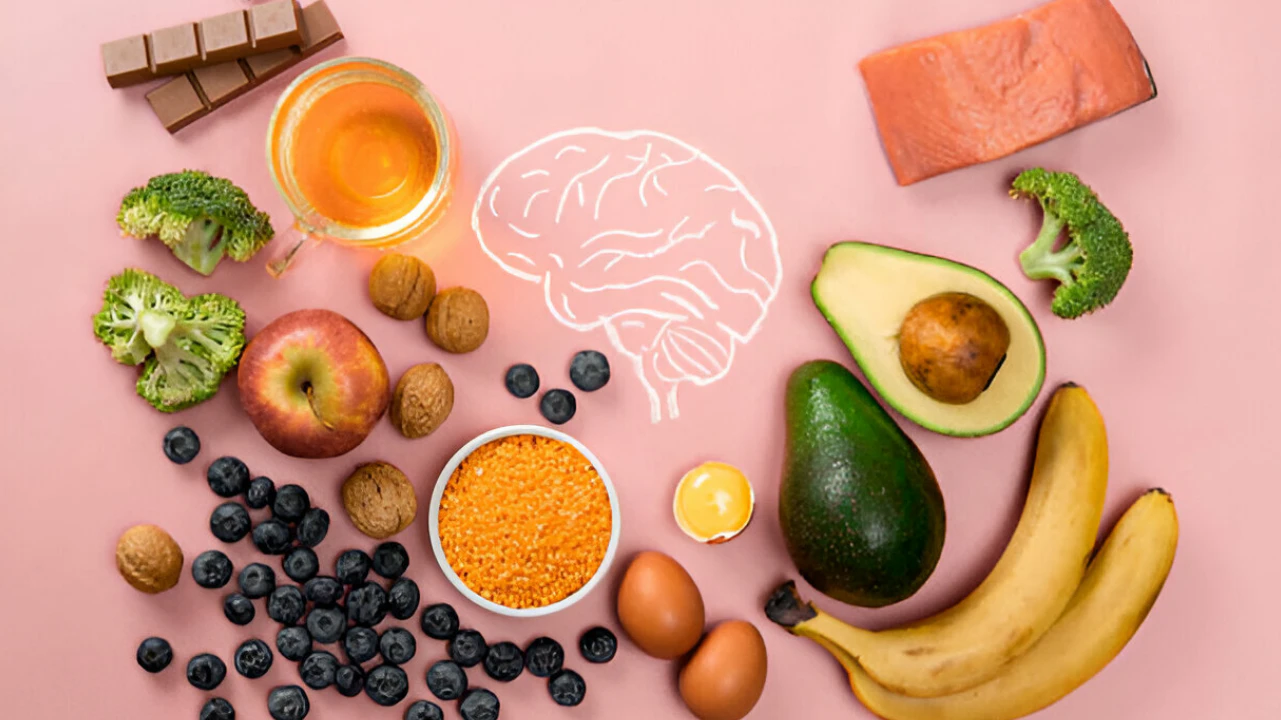Hey there, buddy. I know you’re probable right here due to the fact you’re facing something virtually tough—looking someone you love with dementia struggle with consuming or drinking. Maybe they’re refusing meals altogether, or they simply can’t seem to swallow anymore. It’s heartbreaking, isn’t it? You’re probably wondering, “How long can they cross on like this?” And beyond that, “What can I do to lead them to snug?” I get it—those are heavy questions, and they come with a mix of fear, sadness, and perhaps even a touch helplessness.
But right here’s the coolest news: you don’t have to parent this out by myself. I’m right here to walk you via it, like we’re sitting down with a cup of tea, chatting about what’s to your thoughts. We’ll cowl why dementia makes consuming so difficult, how long someone can stay with out meals or drink, and—most importantly—how you may care for them (and yourself) all through this time. So, grasp a comfy spot, and permit’s dive in with all of the warm temperature and know-how I can muster.
Understanding Dementia and Eating Challenges

What’s Dementia All About?
First matters first, permit’s get a cope with on what dementia clearly is. It’s not simply one disease—it’s like a huge umbrella masking conditions that mess with reminiscence, wondering, and everyday life. Alzheimer’s is the one you listen about most, but there’s also vascular dementia, Lewy body dementia, and others. They’re all special flavors of the same hard cookie: a mind that’s slowly losing its ability to do what it used to. And as dementia marches on, it doesn’t just live in the head—it starts affecting the body, too, like how a person eats or beverages.
Why Does Eating Get So Tricky?
Picture this: you sit right down to dinner, but you may’t figure out what the fork is for, or food simply doesn’t taste proper anymore. For a person with dementia, consuming can feel like a puzzle with lacking pieces. Here’s why it occurs:
Physical Hurdles
One big culprit is dysphagia—fancy word, right? It just means trouble swallowing. It’s like the throat forgets how to work, and food or water gets stuck, leading to coughing or choking. Then there’s stuff like sore gums or teeth that don’t fit right, making every bite a chore.
Brain Mix-Ups
Dementia scrambles the brain’s signals. Your loved one might not remember to eat, or they might not even feel hungry. I’ve heard stories of people staring at a sandwich like it’s an alien object—heartbreaking, but it’s the disease, not them.
Senses Going Haywire
Taste and smell can fade with dementia, so that delicious soup you made? It might taste like nothing to them. And if their eyesight’s off, they might not even see the food on the plate. It’s like their senses are playing a cruel game of hide-and-seek.
Feelings Getting in the Way
Depression or anxiety can creep in, zapping their appetite. Imagine feeling lost in your own world—eating might not seem worth the effort. And if the room’s loud or busy, it can be too much, making them push the plate away.
Seeing all this, you might feel powerless, but knowing why it’s happening is the first step to helping them—and we’ll get to that, I promise.
Food for Dementia Sufferers: The Good and the Tough

Why Food Matters So Much
Okay, permit’s communicate about food for dementia patients—because it’s a big deal. No, it gained’t treatment dementia (I want!), but it is able to make lifestyles better. A properly diet maintains their body going, helps their mind hold in there, and wards off more troubles like infections. Think of it like giving their system a little boost to keep fighting.
Stuff like salmon or walnuts—loaded with omega-3s—can support brain health. Berries and spinach? They’ve got antioxidants to protect those precious brain cells. And water? Oh, it’s gold. Dehydration can make confusion worse, so keeping them sipping is key. The Alzheimer’s Association backs this up—good food can really help.
When Food Falls Short
But here’s the flip side: when they don’t eat enough, things get rough. Malnutrition can weaken them, make falls more likely, or even speed up the dementia fog. It’s like their frame’s jogging on fumes, and that’s when you see weight drop and electricity fade. It’s scary, I understand, however it’s why we’ve were given to try—even when it seems like an uphill war.
How to Make Eating Easier
So, how do you get food into them when it’s a struggle? Here are some tricks I’ve picked up:
Set the Scene
Make mealtime cozy—think soft music, no distractions, maybe a bright plate so they can spot the food. It’s like creating a little oasis where eating feels safe and calm.
Keep It Simple
Forget fancy utensils if they’re hard to grip. Go for finger foods—think cheese cubes, apple slices, or little sandwiches. And maybe skip the big meals for small snacks all day. Less pressure, more nibbles.
Bring Them In
If they can, let them help out. Stirring batter or picking herbs can spark something—maybe a memory, maybe just a smile. It’s a tiny win, but those add up.
It’s not about forcing a feast—it’s about little moments of success. A few bites here, a sip there? That’s progress, friend.
When They Stop Eating or Drinking
Spotting the Shift
Now, let’s get to the hard part. In the later stages, you might notice they’re done with food and drink. They pull away, spit it out, or choke each time you attempt. It’s like their body’s waving a white flag, pronouncing, “I can’t do that anymore.” It’s intestine-wrenching, but it’s a signal the give up is close to—not only for dementia, however for all of us winding down.
What’s Happening Inside
Here’s something to wrap your head around: stopping eating and drinking is natural when someone’s close to the end. Their body doesn’t need much fuel anymore—it’s slowing down, shutting off the lights one by one. Pushing food or water can actually hurt more than help, causing bloating or choking. It’s not starvation—it’s their body letting go, and that’s a tough but okay thing to understand.
How Long Can They Last?
So, how long can they live without eating or drinking? It’s the million-dollar question, and I wish I had a simple answer. Without water, most folks last 4 to 10 days—water’s the big one. Without food? Could be weeks. But with dementia, it’s trickier—their body’s already frail, so it might be less. Everyone’s different, though, so it’s more about watching them than counting days.
No Water
Water’s the dealbreaker. In hospice, they say a few days to two weeks without fluids is typical, but it depends on how strong they were to start.
No Food
Food’s less urgent. If they’re sipping a bit, they might stretch on for weeks without eating. But in dementia’s final act, their energy needs are so low, it’s hard to predict.
It’s Personal
Here’s the truth: there’s no exact timeline. Some fade fast, others hang on longer than you’d think. Focus on today—how can you make them comfy right now? That’s what counts.
Caring for Them at the End

It’s All About Comfort Now
When eating stops, your job shifts—it’s not about fixing them, it’s about soothing them. Palliative care is the name of the game, and it’s all about easing pain and keeping them peaceful. Think warm blankets, gentle words, maybe a little pain relief if they need it.
Little Ways to Help
Easing Pain
They might not say “ouch,” but they could still hurt. Chat with their doctor about meds or try repositioning them with pillows. Small tweaks can mean big relief.
Moisture Matters
No need to force water—just dab their lips with a wet cloth or offer an ice chip if they can handle it. It’s like a tiny hug for their dry mouth.
Heart and Soul
Sit with them. Hold their hand. Play that old song they loved. Even if they’re quiet, they might feel you there, and that’s everything.
Hospice: Your Backup Team
Ever heard of hospice? It’s like a squad of angels—nurses, counselors, helpers—who swoop in to make this easier. They handle the medical stuff and lift you up when you’re sinking. If you’re overwhelmed, give them a call. They’ve got your back.
The Legal and Heart-Tugging Stuff
Their Wishes on Paper
If your loved one wrote down what they wanted—like no feeding tubes—that’s an advance directive. It’s their voice, loud and clear, even now. Share it with the doctors so everyone’s on the same page.
Deciding for Them
No directive? Oh, friend, that puts it on you, and it’s heavy. You might wonder, “Should I keep them going or let them rest?” Talk it out with the care team—they’ll guide you through what’s kindest.
The Feeding Tube Question
Here’s a doozy: to tube or not to tube? It sounds like a lifeline, but studies—like one in the Archives of Internal Medicine—say it doesn’t always help in late dementia. It might even cause trouble, like infections. Most pros say comfort beats prolonging things, but it’s your call, and it’s okay to wrestle with it.
Taking Care of You, Too
Feeling All the Feels
You’re a rock, but even rocks crack sometimes. Caring for them is a rollercoaster—sadness, guilt, maybe relief when it’s over. That’s normal. Let yourself cry, scream, whatever you need. You’re human, not a superhero (though you’re pretty close).
Finding Your People
Don’t go it alone—there’s strength in numbers. Check out support groups through places like the Alzheimer’s Association. Swap stories, get tips, feel less lost. It’s like a warm hug from folks who get it.
You’ve Got to Recharge
You can’t keep giving if you’re empty. Sneak in a walk, a nap, a silly movie—whatever fills your tank. Respite care’s an option too—someone steps in so you can breathe. You’re not failing them by resting; you’re staying strong for them.
Wrapping Up With Love
Seeing your loved one stop eating or drinking is like a punch to the gut, but it’s also a chance to pour all your love into their last days. How long they’ll live without food or drink? Hard to say. But how much you can comfort them? That’s in your hands. Be there, hold them close, make them feel safe.
And you—yes, you—don’t forget you’re in this story too. Lean on friends, pros, whoever can lift you up. You’re doing something amazing, even when it feels impossible.
Got a story to share? Something that helped you through this? Drop it in the comments—I’d love to hear, and it might just light someone else’s way. We’re all in this together, friend.


















Leave a Reply
You must be logged in to post a comment.